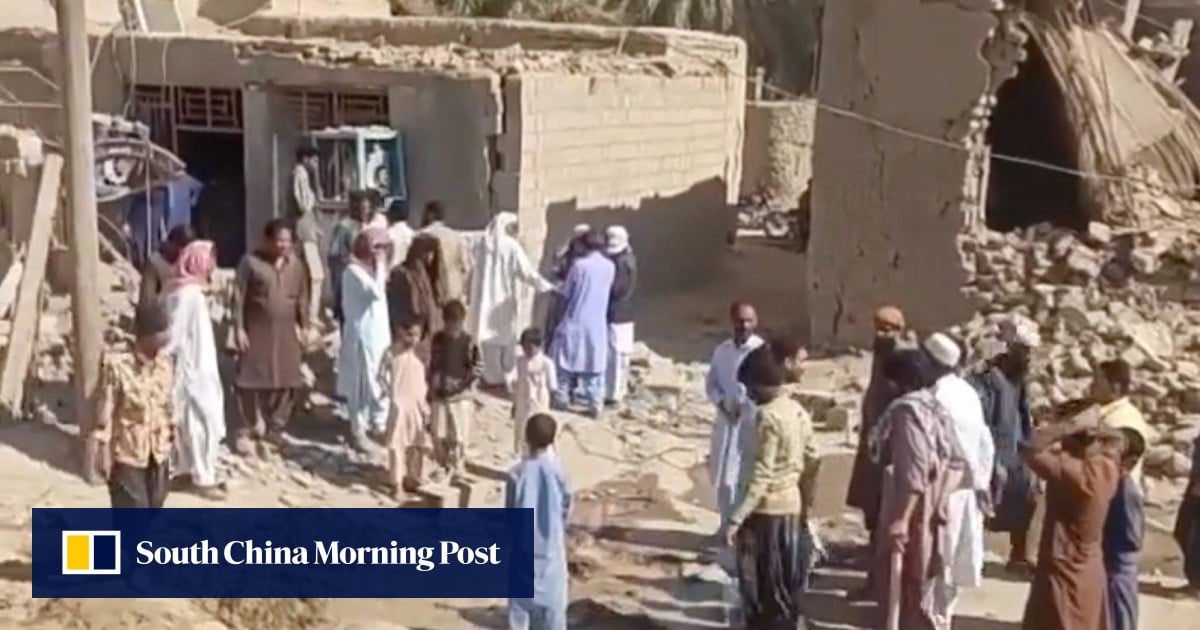The Iranian government said it was targeting Jaish al-Adl, a Sunni separatist group active primarily in Iran’s Sistan and Baluchestan provinces, which border Pakistan.
Islamabad said it was also targeting rebel groups hiding in Iran.
The attack sparked a series of diplomatic protests between the two countries.
China, a close partner of both countries, said it was monitoring the situation closely and wanted to play a “constructive role” in easing tensions.
The ministry called on Tehran and Islamabad to “remain calm and exercise restraint” and avoid escalating tensions.
Abdul Basit, an associate research fellow at Singapore’s S. Rajaratnam School of International Relations, said China’s interests are high for both countries.
“While tensions between Islamabad and Tehran are detrimental to China’s economic and geopolitical interests, stability in the Iran-Pakistan-Afghanistan region offers China several opportunities to expand into Central Asia and beyond.” said Bassit.
“China still maintains a low-key approach regarding tensions between Iran and Pakistan. However, through back channel contacts, China will play a more active role in ending tensions.”
As China’s “iron brother”, Islamabad has a close partnership with the Chinese government, cooperating on everything from economic investments to defence.
Pakistan is the largest purchaser of Chinese weapons. According to the Stockholm International Peace Research Institute, nearly 54% of China’s major arms exports from 2018 to 2022 went to China.
Pakistan is also home to dozens of projects related to the multibillion-dollar China-Pakistan Economic Corridor, the centerpiece of China’s Belt and Road Initiative.
The corridor is part of Beijing’s efforts to link Xinjiang in the far west with the Arabian Sea, with a major component in Balochistan, one of Pakistan’s poorest provinces.
China and Iran are also strengthening ties, with the two countries reportedly signing an agreement in 2021 covering areas from investment to defence.
Despite US sanctions, China’s oil imports from Iran increased by 48% in the first half of 2023 compared to the same period last year, making Iran the third largest oil supplier.
Tehran also sees China as an escape route from international isolation. Last year, China helped broker a peace deal between Iran and Saudi Arabia, and Tehran became a member of the Chinese-led Shanghai Cooperation Organization in July.
This year, Iran will officially join BRICS, a coalition of five major emerging economies: Brazil, Russia, India, China, and South Africa.
China ensures stability through Belt and Road deal in Afghanistan: expert
China ensures stability through Belt and Road deal in Afghanistan: expert
Zhu Yongbiao, from Lanzhou University’s School of Politics and International Relations, said maintaining border security, especially curbing the rise of separatist forces in the region, is extremely important for China for economic and political reasons.
“[A stable border situation] It will be beneficial for China in terms of building Belt and Road projects. On the other hand, if the conflict escalates, the deterioration of the security environment could affect China’s western borders. [China] I don’t want that to happen,” he said.
Zhu said Pakistan, Iran and Afghanistan often accuse each other of harboring terrorist organizations, and further escalation would also affect Afghanistan.
China is seeking help from Taliban-controlled Kabul to contain the East Turkestan Islamic Movement, which Beijing blames for violence and ethnic tensions in Xinjiang.
Iran and Pakistan are also important partners for China in counterterrorism efforts in the region. Last year, China began regular anti-terrorism talks with Pakistan and Iran to “address the cross-border movement of terrorists”, but this is the first dialogue of its kind with Iran and Pakistan.
Meanwhile, Zhu said that escalation could undermine Beijing’s ambitions to lead the Global South, as both Iran and Pakistan are members of the South African nation.
“The SCO’s main responsibility is to maintain security cooperation. If two of its members come into conflict, it will have a serious impact on the SCO’s credibility and capabilities, which will be bad for China. ” said Zhu.
Barshit said tensions between Iran and Pakistan are not expected to escalate, especially as Pakistan prepares for a general election next month and Iran faces conflicts in the Middle East from Gaza to Gaza. Facing greater security challenges, both countries can use diplomatic channels to resolve the situation, he said. Red Sea.
Zhu added that border clashes between Pakistan and Iran have been going on for a long time, and both countries have extensive experience in de-escalating tensions.

